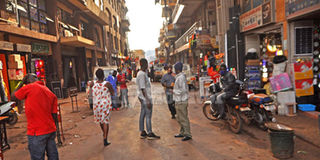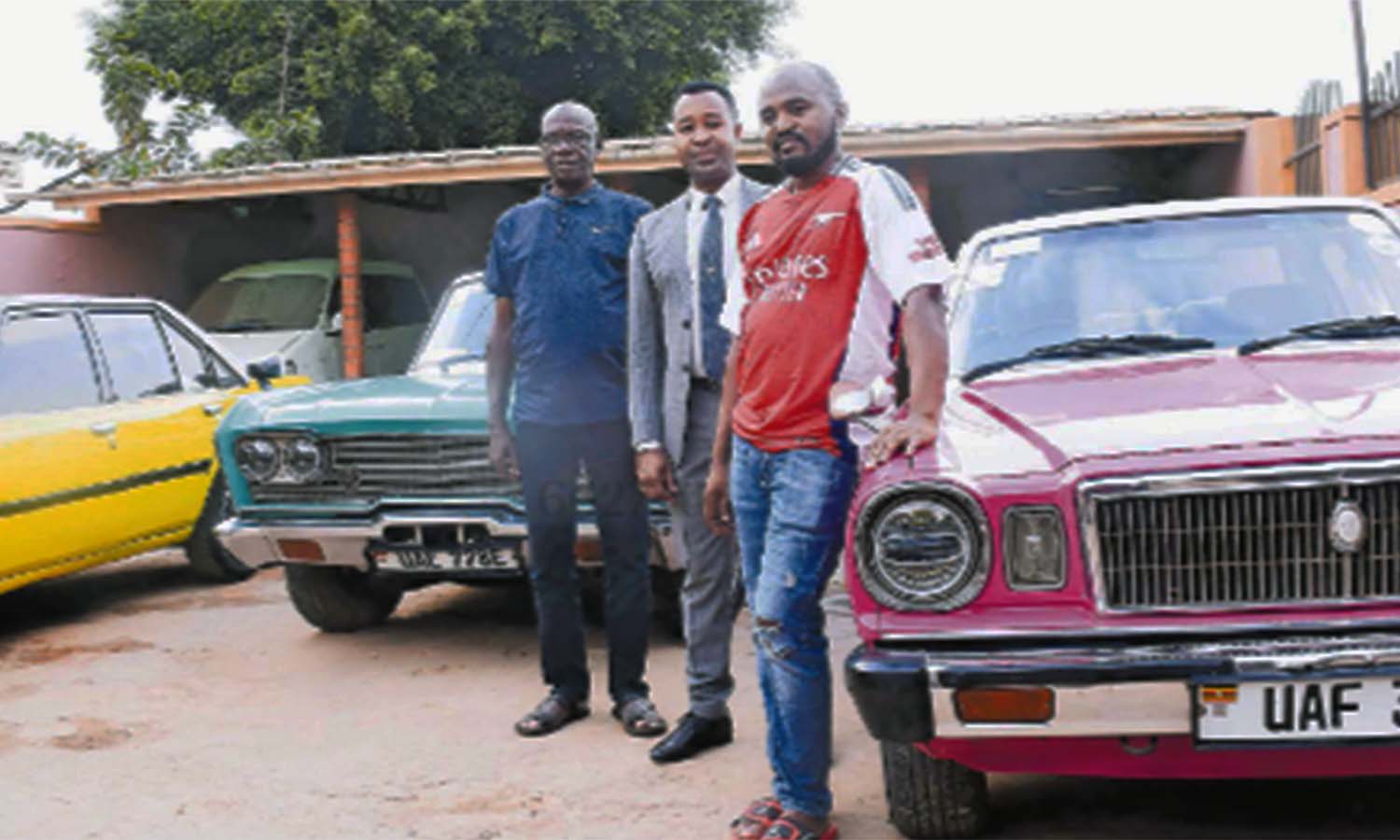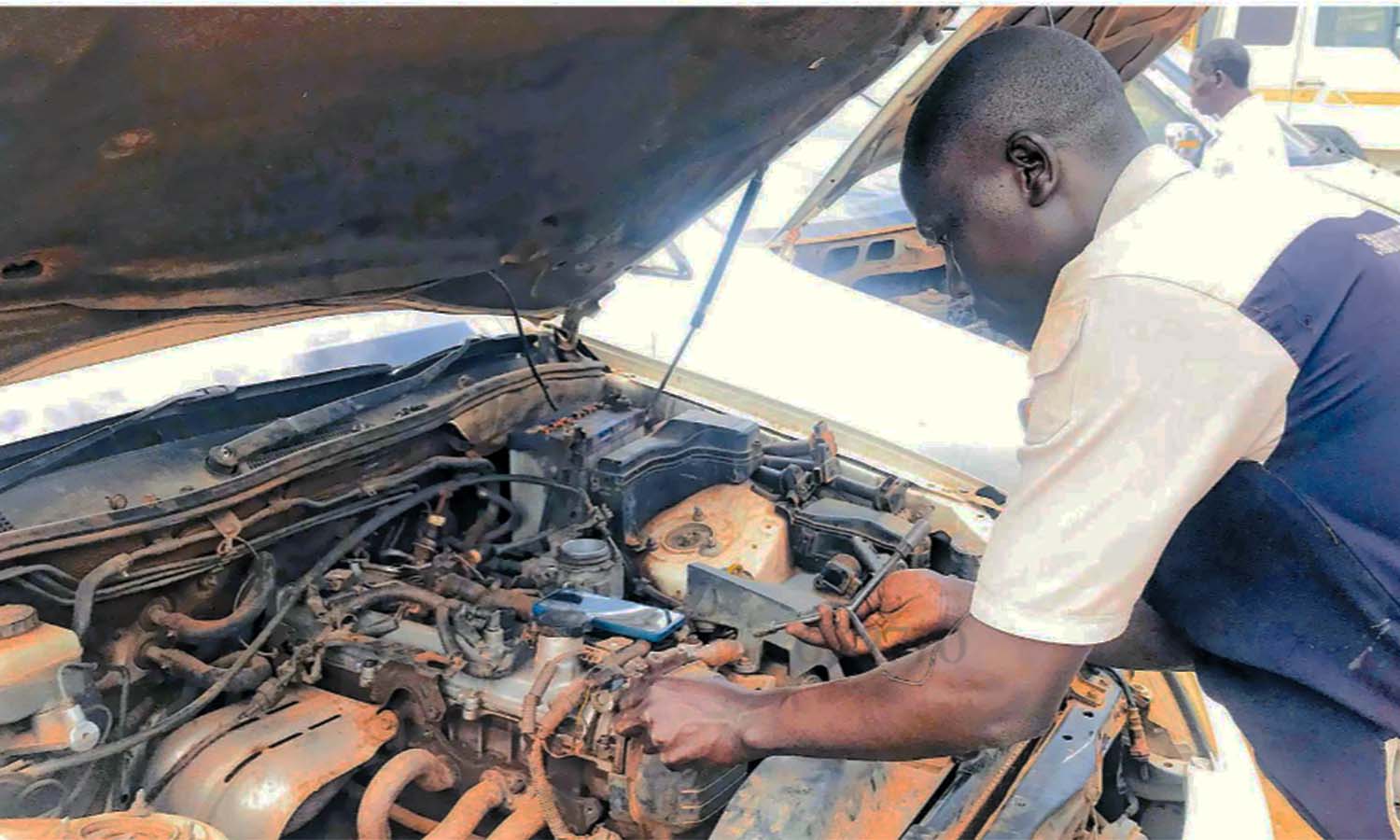Prime
Covid fear, travel ban empty Kampala streets

People go about their business on Kiyembe Lane in Kampala yesterday. Due to the increasing number of Covid-19 cases, many people have abandoned the city centre. PHOTO/STEPHEN OTAGE
What you need to know:
- By 7pm, you can hardly come across any functional hangout as many revellers leave early to beat curfew. In the evening, the city is quiet with pockets of busy places.
- Traders say there are many losses since many of their clients are from upcountry.
The capital, Kampala is a deserted place. It is devoid of the usual traffic chaos, the taxi touts, and the sea of people downtown.
When President Museveni announced a partial lockdown, which banned inter-district movement and restriction on traffic for 42 days, many sought refuge in the upcountry homes, leaving a skeletal population in the capital.
As of yesterday, downtown Kampala, one of the most crowded areas, had a handful of people going about their business. Many bus terminals were locked while shopping arcades were open with few customers.
Many taxis in the parks remained stationary, while those in business took longer to fill up.
For pedestrians downtown strolls were a walk in the park as they moved on the pavements without fighting with boda boda riders.
The situation isn’t any different in the markets as the number of customers who normally flock these facilities has significantly reduced, leaving most traders with minimal sales.
A spot-check in the city on Monday and Tuesday showed unusual silence in most of the facilities.
Ms Salmah Namuddu, who operates a boutique at Qualicel Shopping Arcade, says sales have dropped in the last five days and the situation is likely to get worse.
Ms Namuddu says her biggest clientele are retail traders from upcountry who buy in bulk.
The suspension of transport between districts, she says, has made the travel of her clients impossible hence low sales.
“It is quite hard for us traders because even those who remained in the city fear to spend money on clothes because they are not sure of when the lockdown will end and are instead saving their money for the unknown. I hardly get 10 customers each day unlike the previous situation where customers thronged my shop in big numbers,” she says.
Many traders in the arcades sit idle waiting for customers. Some end up closing as early as 4pm.
“Most people who buy merchandise are those from other districts and that’s why you see there is no serious business in most arcades. This is likely to affect us because at the end of the month we have to pay rent yet we have barely made any sales throughout the lockdown,” Mr Stephen Javira, a trader at Nalubwama Arcade, says.
Traders also told us that some of their colleagues have resorted to hawking merchandise in the outskirts of the city to make extra sales.
By 7pm, you can hardly come across any functional hangout as many revellers leave early to beat curfew. In the evening, the city is quiet with pockets of busy places.
Popular suburbs like Wandegeya, Nakulabye, Kasubi, Kawempe, and Rubaga, among others, go silent by 7pm.
However, some people have resorted to work closer to home to avoid the high transport fares and also reduce the possibility of contracting Covid-19.
In the city’s slum of Katanga is a group of ladies in their prime who knit doormats. Though they previously hawked their merchandise in the city centre, they have since changed tact due to the Covid-19 restrictions.
They now hawk their merchandise on Kira Road, Binaisa Road, and Mulago Road.
“We no longer go to the city centre and in markets because of the congestion and that’s why we chose to operate outside the city where there are less people and our health is a priority. However, there has been a drop in our sales because our market base is limited but we are hopeful that the situation will get better,” Ms Allen Akello, one of the group members, says.

Kikubo in Kampala is still crowded despite the Covid-19 warnings. PHOTO/STEPHEN OTAGE
For some people, especially those doing white-collar jobs, their employers asked them to work from home in a bid to social distance in offices.
However, some transporters argue that government should consider giving them a stimulus package because their activities have been greatly affected.
They say that the fresh lockdown has worsened their already crippling business which is still recovering from the first lockdown.
But to some people who drive to work, the current situation is very favourable because they move seamlessly without any traffic gridlock that normally characterises most city roads.Most roads are clear and it takes less time for one to reach a particular destination.
Mr Simon Ssekindi, a medical practitioner, says he now uses only 30 minutes from Seeta to his pharmacy on Wilson Road in the city unlike before where he would spend at least two hours in jam.
Kampala Capital City Authority’s (KCCA) deputy executive director David Luyimbazi says they are using this period to fix the city’s roads.
“As you are already aware, congestion is our biggest problem in the city. Our teams have already started working on some of the roads and identifying other voids that need to be fixed as soon as possible such that by the time people return to the city we should have gone a mile ahead in terms of reorganising the city,” he says.
Kampala metropolitan police deputy spokesman Luke Owoyesigyire says the number of robberies have reduced due to less congestion in the city although he doesn’t offer statistics.
Mr Owoyesigyire also says there has been adherence to the 9pm curfew deadline.





